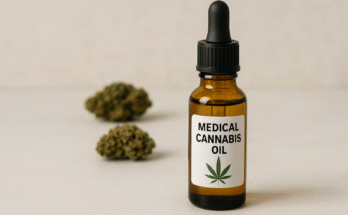“The beginning of wisdom is to call things by their proper name”, according to the Chinese philosopher Confucius.
So it’s pretty unwise that many people (particularly Daily Mail and BBC journalists) continue to call THC-rich cannabis “super-strength skunk” when it is, in fact, no different from the medical cannabis that has been legally prescribed in the UK since 2018.
What is skunk?
When it comes to the cannabis available on the UK’s black market, you’re likely to find only products high in THC and low in CBD. Samples from the street regularly test as high as 20% THC and up, which is somewhat higher than in previous decades. This is due to developments in genetics and cultivation practices over the years.
It’s these high-THC varieties of cannabis that the UK’s media has labelled ‘skunk’, which they claim to be genetically-modified, super-strength cannabis. Put simply, this is nothing but sensationalism from the British media (surprise, surprise).

In fact, the term ‘skunk’ is actually the name of a certain strain, or cultivar, of cannabis – no different from hundreds of other strains that have been developed around the world, like Kush, Haze, and Cheese.
Skunk (or Skunk #1 as it was originally called) was given its name due to its pungent smell, which resembles that produced by a skunk, just as Lemon Haze, another strain with similarly high levels of THC, was named due to its citrusy stench.
How the term ‘skunk’ came to be an umbrella term for all high-THC cannabis is largely down to the fear-mongering British mainstream media – and it causes a lot of needless confusion.
Same as medical cannabis
While the press label high-THC cannabis as “super-strength skunk” that is “highly addictive” and “psychosis-causing”, at the same time, high-THC cannabis is being prescribed by doctors (in the UK as well as numerous other places) for all manner of medical conditions.
Many licenced cannabis products have well over 20% THC and would be classed as ’skunk’ by the press should it be found on the streets. However, when prescribed by a doctor and purchased from a clinic, it’s considered medical cannabis. Clearly, this makes no sense.
If we are to have a rational and sensible conversation around the use cannabis, the first logical step would be to make sure we are precise in our language and call things by their correct name. That means words like ‘skunk’ should be dropped altogether unless we are talking about the actual Skunk #1 strain.

A rational approach
Perhaps the reason for rising mental health problems associated with cannabis use isn’t quite so simplistic as to be put at the feet of “super-strength skunk”. Perhaps it is due to far more complicated societal problems such as increasing inequality, the disintegration of communal and familial structures, and the deterioration of health in general?
If the lawmakers of the UK would read scientific papers rather than tabloid headlines then we could have a rational and productive conversation about properly reforming our outdated cannabis laws.




